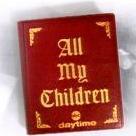-
Recently Browsing 0 members
- No registered users viewing this page.
-
Recent Posts
-
By Paul Raven · Posted
For a homeless woman, June sure has nice teeth. I agree Ted didn't bring the power in the fallout scenes but to can him and leave Tomas, Martin and Derek onscreen? i'm not looking forward to Martin's secret being revealed and have him flail in the spotlight scenes. Yes, he's got a little better, but... When someone like Timon delivers with every line reading, you wonder how some other casting decisions were made. And I need sunglasses every time characters are at Uptown-is that green paint left over from GL's Cedars Hospital makeover? And for the cliffhanger, instead of the Door dash nonsense, simply have Leslie encounter Vanessa on her way out and push past her to enter. As there is no front door have Leslie barge into the living room, with Vanessa following. Then Nicole can tell Vanessa- it's OK she can leave them alone. -
My question was basically is Dani the only character to have a bedroom? And then the response was Jacob and Naomi ONLY have a bedroom as their set .
-
By Paul Raven · Posted
Our next installment of Love of Life 1976 Before leaving San Francisco, Cal phones her Aunt Van to set up a family gathering. Van arranges it, and upon their return, Cal and Rick announce that they are engaged. In the shocked silence that follows the announcement, Meg steps in to offer her congratulations, and also to pay for the wedding. But the family members still don’t respond happily. They fear that Rick isn’t good enough for Cal, and are surprised by Meg’s offer. Rick and Jamie visit Meg and ask whether, in light of her acceptance of his marrying her daughter, she |will drop the lawsuit. She replies that she will if he returns as her partner in Beaver Ridge. Rick reminds her that this has been settled; he can’t do that. So Meg, pretending largesse, says she’ll drop the suit, but in fact she asks her attorney to put the suit in abeyance, so it can be reopened at any time. Rick gives Cal a lovely diamond-and-sapphire engagement ring, and Betsy, who has promised to be Cal’s honor attendant, gives ‘her the dress she wore when she married Ben, saying that a bride who really is a bride should have it. Cal speaks privately to each member of the family, hoping to convince them that she and Rick are right for each other and will be happy. Jamie, after accepting Rick’s request that he be best man, checks to see if Meg has dropped the action, as promised. Finding out that it’s only in abeyance, Jamie asks if she is planning to sue her son-in-law in the future. Meg insists that she has acted on her attorney’s advice. Meg convinces Cal to give her two weeks to plans a lovely wedding, but after several days Cal discovers that Meg has done nothing in preparation. She therefore informs her mother that she and Rick will be married this weekend at the chapel. Betsy goes into labor and has her daughter by the natural-childbirth method. Cal tries to reach Ben, to tell him he’s a father, but has to be content with leaving a message. An ecstatic Ben sends flowers and a card to his wife and daughter Suzanne. Meg, in desperation at being unable to stop the wedding, has been drinking heavily. When she tells Carrie she can’t sleep and that’s why she can’t get herself together, Carrie sympathetically gives her some tranquilizers which Tom had given her. At the wedding rehearsal Meg tries once again to “reason” with Rick, but he makes it clear that he and Cal are getting married as planned. Meg then faints, upsetting Cal, who declares that her mother’s health is more important than the wedding. This gives Meg an idea. On the afternoon of the wedding, as the bride’s party waits at the chapel for Meg, she takes some of the pills, then calls Rick and tells him what she has done. When he doesn’t believe her, Meg becomes even more upset and takes more pills. When Rick informs | the wedding party of Meg’s call, they don’t believe she’d do anything that foolish, but Cal and Rick realize they can’t take the chance and go to her home. Finding her unconscious, they rush her to the hospital.Meg is treated for overdose complicated by alcohol and eventually regains consciousness.Van and Bruce offer to take Meg to their, home to recuperate, but Cal, worried because Joe raises the concern that Meg could try it again, allows her mother ‘to convince her to take her home with her. Meg is pleased with herself for having managed to come between Cal and Rick, and begs Cal not to let Rick come to the apartment, as she can’t bear to have him see her like this. Meg then works on Cal’s conscience by pitifully admitting that she loves Rick and can’t live without him. Van tries,- without success, to make Meg see that Cal and Rick are in love and can make each other happy, but Meg won’t give up and suddenly begins to have “headaches.” Even Betsy overcomes her bitterness at Meg and brings baby Suzanne to see her,trying to get Meg interested in living again. But Meg insists she can’t do anything because of her delicate | condition and has no interest in Beaver Ridge at all. .Rick has to go to New York on business and asks Cal to go with him. She replies that she can’t; she’s afraid to leave Meg. Cal, with Hank, sees Rick off at the airport, and just before he boards, he gives her a letter to read later. She reads it at home that evening; -it’s a plea from Rick to join him in New York and get married immediately. He tells her that their love and their being together are the only things that matter.Cal puts the letter in her handbag and goes to shower.Meg has seen the letter and reads it. Upset that Cal might do what Rick asks, she goes to Joe at the clinic, claiming she’s sleeping badly, and asks for sleeping pills. Joe, of course, refuses to give them to her, and, as she has hoped, he calls Cal to warn her. Cal now redoubles her efforts to keep an eye on her - mother. Meg, complaining of another headache, asks for water to take aspirin and takes four tablets from abottle, which she holds so Cal can see the label has been removed. When Cal snatches it and demandsto know what she’s taking and where she got them,Meg “confesses” that she went to a new doctor for sleeping pills because Joe wouldn’t give her any. Seeing she’s got Cal where she wants her, Meg presses Cal to promise she’ll be there as long as she needs her. Rick’s New York trip comes to nothing when he discovers the prospective backers want almost complete control of the project. Jamie suggests that Rick talk to Meg again about dropping the suit, as every cent Rick has is being tied up by this litigation. Rick insists that Meg won’t do any favors for him, and he isconvinced that her suicide attempt and subsequent emotional instability are just a scheme to tie Cal to her. But he realizes Cal won’t be able to see it this way. Rick sees only one more possibility to his financial problem: Ray Slater promised to help him if hearranged a meeting between Ray and Jamie, which Rick did. As a result of that meeting, Ray informed Ian Russell that he might be able to get Beaver Ridge for him but will require a piece of the action if it works out. Rick arrives home to find a distraught Cal, who informs him that she was warned by Joe to watch out for Meg and, sure enough, she discovered her trying to pass sleeping pills off as aspirin. But Rick insists on knowing the name of the doctor Meg got the pills from, and when he attempts to call him, Meg backs down and admits there was no doctor and no sleeping pills—the bottle contained her allergy medication. Cal is horrified that she allowed herself to be taken in again by Meg in spite of knowing firsthand what her mother is like and warnings from the entire family. Rick insists that she get away from Meg now and go visit Betsy until he gets things settled. As soon as Cal has gone, Rick insists that Meg come out of the bedroom where she has barricaded herself, and tells her he knows her too well to believe she would ever take her own life. He tells her he admires her and would like them to come out of this as friends. Meg makes it clear that friendship isn’t what she wants from him. But when Rick picks up Cal, who now wants to get married right away, and | returns to her apartment, they find a note from her “loving mother” saying she and Rick are now friends and they should call her after they are married. -
As always, really interesting to get your impressions! I was only watching sporadically during this period (whereas I was transfixed during the Marian storyline), but if I remember correctly 1996 was a pretty rough transitional year. It came at a period where P&G was playing musical chairs with its executive producers--ATWT was hit especially hard by this. The current executive producer, Michael Laibson, is out in November 1996, replaced by Paul Rauch, who stays for nearly 6 years. While Rauch has a few really bad ideas that cause long-term damage to the show, those don't really kick in until 1999, and his first couple of years are very strong. So once you get to 1997, you should see the show rebound significantly.
-
Haha love a little drunk posting
Please register in order to view this content
-
I’m up to April 01, 1996. I think I’m starting to understand what many have said.. things are different. I miss the community vibe of Springfield, when you had people working at the hectic newspaper, the choatic diner, the rich were coming in for coffee, or the TV network was abuzz about the latest scandal. Things have become a little more tunneled into their own storylines. Right now, for me anyway, there isn’t a strong desire to see what happens next, ever since the Brent/Marian story ended. It was a darker, more suspenseful storyline that really got me intrigued and waiting to see what happens next, while everything else was just a nice view of midwestern families living their dramatic lives. And I love that too, when the characters and storytelling is strong, but right now, some things are a little stale. In these last 5 weeks, we had two bigger events: Nick and Susan’s wedding: it was sweet, but I really found it weird they played music over their vows instead of being able to hear them. Then, they leave town immediately after and for good? We really didn’t get a ton of time with them - one minute Susan is in a hospital bed, post-coma, celebrating the new year, and now she’s married and gone. I’m having a hard time with the revolving door of characters since my early ’95 watch. This year we’ve lost so many characters, gained so many characters, and to what end? Henry’s funeral: this was so sad, considering the real actor passed. I’m curious what other fans thought about the funeral. Granted, when an actor passes, you don’t have much time to plan ahead, so you need to insert it into whatever storylines are happening at the time. But sadly, this funeral happened when everyone was hating each other. Vanessa was upset with Matt because the Amanda secret came out and he kept it from her. Quint showed up, with his very young affair no less, which made both Nola and J upset. Amanda was there which upset both Blake and Ross. Roger insisted he give a speech which upset everyone. Vanessa was mad at Quint for bringing his young girlfriend, and then Dinah was so upset about her grandfather, which was emotional, but everyone is currently at odds with Dinah. The flashbacks were effective, and the most emotional scene was Vanessa’s breakdown when reading Henry’s letter to her. Otherwise, it was a pretty hateful funeral, which felt icky. Otherwise, my quick pros and cons currently happening… Pros: Alex and Hawk are great and funny. He gets under her skin and it’s hilarious to watch her react, but she needs him. They were in LA trying to get dirt on Amanda’s former life and Hawk was living it up with young gorgeous women and all the spending money at his disposal. Generally, the Amanda and her secret storyline is interesting and I really like the actress. Alex vs. Amanda is entertaining. Tina came onto the scene around the time Nadine died, but she’s been given a backstory which is interesting to me now. She’s a prostitute, who means well, and is trying to take care of her daughter, Dahlia. She grew up with Frank, who has a soft spot for her. Marcus, in a new storyline he desperately needed away from Dinah and his dad, has taken a strong liking to Dahlia. She sings well and he plays saxophone well, so their music is endearing. Sadly, Tina got involved in a robbery gone-bad, where they held up a Spaulding board of directors meeting. She flees, but Frank catches her outside and is forced to arrest her, while Cleary (she’s back!) arrests the main bad guy involved and saves the Spaulding family. I’m curious to see where this one goes, but curious, was Tina actually on the show before this or is she a brand new character? Cons: The Dinah/Hart/Roger storyline is pretty stale now. I need something new. Lucy and Alan-Michael are barely on since Brent left, which is sad. You spend an entire year on a storyline that builds their relationship, brings strife and wedges, and now that they’re finally able to be together in love with no obstacles, you never show them? I want to see them happy! Oh and Lucy and Bridget/David haven't had a scene since Marian tried to get 'a room at the boarding house, which is weird because we haven't seen Bridget react to Lucy being alive. I don't even know if Lucy even lives at the boarding house or with AM, but it's sad pretending like Lucy/Bridget/David were never close friends. Reva/Josh, which is hogging airtime, is a serious whiplash. One week Josh loves her, she hates him; the next week, she loves him, he hates her. He’s always lying to Annie, but now he’s marrying her again, the second wedding in 4 months. I’m also very tired of Marah, her angst over everything, and their overwhelming concern over her. As much as I don’t like Buzz, it is funny watching Reva work at the diner, but I’ll never side with Alan so watching him have feelings about Reva/Buzz or Reva/Josh does nothing for me. Finally, the other small B storylines are only on like once a week which isn’t enough: Gilly/Griffin/Viviane, Michelle/J, Blake/Ross/Rick, Rick/Abby, Holly/Fletcher and the baby. Something that just popped up out of the blue is David Grant leaving Springfield out of nowhere. He professed his love to Bridget, who turned him down, so he decides to leave when Griffin gives him a job opportunity. Sadly, another character written out for many new characters being introduced. Makes me wonder who is making these calls - the producers, the network, the writers, the fans?
-
By Contessa Donatella · Posted
OH. The AMC/OLTL Crossover with helicopter, down in the woods, 2 very pregnant, both give birth, only one baby lives. We are on the same page!!!
-






Recommended Posts
Archived
This topic is now archived and is closed to further replies.